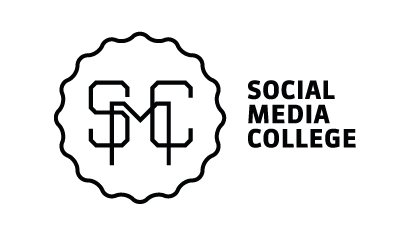Traditional marketing vs digital marketing: Which should you use?
Discover the difference between traditional marketing and digital marketing, the pros and cons of each, and which method better suits your business needs.

In recent years, the marketing profession has changed and grown exponentially. Like many industries, marketing has had to adapt and evolve to suit the needs of our ever-changing world.
This has meant that many of the more traditional marketing techniques have been replaced by digital marketing tools, so businesses can tap into the huge potential that comes with promoting goods and services online. In 2020, a report found that 72% of marketing spending was allocated towards digital marketing in the UK.
So, traditional marketing vs digital marketing: what’s the difference? In this article, we will explore both types of marketing and look at the pros and cons of each. Afterwards, you should be able to decide on your preferred method and get one step closer to creating that killer marketing strategy.


What is traditional marketing?
The main difference between traditional marketing and digital marketing is that the former relies on offline marketing channels, whereas the latter uses online marketing channels. Traditional marketing techniques tend to predate the Internet. Once, traditional marketing was the only kind of marketing, but then the digital world started rapidly developing.
Some traditional marketing examples include:
- Billboards
- Newspaper and magazine adverts
- TV and radio adverts
- Traditional mail
- Flyers
- Phone calls
- Events and networking.
Looking at the traditional marketing methods above, you may think some of them are a bit outdated and irrelevant in modern society. In many circumstances, you’re probably right, but there definitely is still a time and place for traditional marketing channels.
Depending on your business type and the audience you’re trying to reach, traditional marketing methods may actually still be more effective. This is why it’s important to know your audience and understand your limitations as a business.
Pros and cons of traditional marketing
In order to differentiate between traditional marketing and digital marketing, it’s important to know the pros and cons of each marketing method. In this section, we will look at the advantages and disadvantages of both, so you can figure out what your business needs.
Pros of traditional marketing
Huge potential audience
With digital marketing, your audience will need to be online in order to see your adverts. However, traditional marketing can be consumed by just about anybody, whether they are located at home, at work, or on the move.
Doesn’t require technical skills
Some digital marketing techniques can be a little confusing and harder to implement for some people, especially if you haven’t grown up around technology. Traditional marketing tools tend to be a little more straightforward and don’t require you to be particularly tech-savvy.
More chances to connect with a local audience
Traditional marketing allows you to connect with local audiences and interact with them on a more personal level. This is a great way to build strong relationships and genuine interest in your brand.
Some of the more old-school marketing methods are able to put your brand at the heart of your local community. For example, distributing flyers through letter boxes and leaving them with local businesses.
Easier for people to digest and process
Some people still prefer consuming hard-copy marketing materials, such as newspaper adverts, mail, and flyers. Information can often be easier to process when printed in hard copy, and ensures people don’t get lost in all the fancy graphics and images that are often used in digital marketing materials. This is especially relevant if you’re targeting an older audience.
Cons of traditional marketing
More expensive
Despite the fact that switching to digital marketing can be expensive, most digital marketing techniques are cheaper to implement. Advertising spaces can be very expensive when using traditional marketing methods. Especially if you’re considering billboards or TV and radio adverts.
Harder to measure and analyse results
Using traditional marketing techniques will mean that your interactions and outputs are much harder to measure. In an increasingly data-driven world, this can be hugely frustrating for many companies.
Digital marketing allows you to record accurate data about how successful a campaign has been and ensures you can use this information to make improvements moving forward.
Takes longer to reach your audience
There is often a lot of red tape involved with traditional marketing, which means campaigns can take a lot longer to be rolled out. It’s very hard to make any edits to traditional marketing materials, so a lot of time is spent making sure that advertising campaigns get it right the first time.
The traditional marketing audience is declining
While newspapers, radio, and traditional mail are all still used, they’re nowhere near as popular as they used to be. A new generation of online, digital consumers has meant that some of the traditional methods of marketing are seriously outdated.
In short, a large chunk of your potential audience has changed the way they consume information, and you risk losing out if you don’t adopt some digital marketing techniques.
Harder to target specific people and groups
Digital marketing allows you to target more specific areas of your target audience, whereas traditional marketing methods can’t offer the same level of segmentation.


What is digital marketing?
Now it’s time to see what digital marketing offers. Digital marketing generates 50% more interactions with customers than traditional marketing, which perfectly justifies the massive switch to digital marketing that many businesses have undertaken.
In short, digital marketing uses digital channels such as websites, social media and email as tools to communicate with audiences.
Some digital marketing examples include:
- Social media
- Search engine optimisation
- Pay-per-click
- Content (written, audio, and video)
- Mobile
- Affiliate
- Influencer.
Pros and cons of digital marketing
Still unsure of the difference between traditional marketing and digital marketing? Let’s take a look at some of the pros and cons of digital marketing to see how they compare.
Pros of digital marketing
Measurable campaigns
Online metric tools help you measure how successful a campaign has been and indicate how to improve in the future. For a results-driven business, this acts as a great tool for tracking how effective your marketing strategy is.
Able to target specific people and groups
Digital marketing techniques help you to tailor content towards specific people, whether you use a social media platform to reach a specific demographic or use targeted online adverts.
Global reach
The majority of the world is now online, which means you can have access to a global market in just a few clicks. Digital marketing allows you to reach corners of the world that wouldn’t be possible using an offline format, expanding your brand’s reach significantly.
Lower cost
Generally, digital marketing is a lot cheaper than traditional marketing, since you’re able to reach the right customers at a much lower cost. Other than staff salaries, a lot of digital marketing methods online are actually free.
Easier to personalise
You can easily create targeted adverts that appeal to your customers and make sure your brand is reflected in every single bit of digital marketing collateral you produce. The more you get to know your audience, the easier it is to refine your customer profile and market more successfully.
Cons of digital marketing
Not as permanent
The online world moves incredibly fast. This means that your social media post, Google advert, or email can easily go unnoticed and be forgotten about. There is often only a small window for your digital marketing output to be successful.
Steep learning curve and can be confusing
When it comes to digital marketing, there’s a lot to learn. In most cases, each digital marketing method you deploy will need a specialist or someone who can easily learn quickly on the job.
It’s important your staff have the right expertise and knowledge to execute all the different digital marketing components – or, you can ensure you have the right skills by taking an online course or two.
High competition
Competition with digital marketing is fierce, as you’re up against brands from all over the world. Stayng ahead of your competitors is a daily challenge, so making sure your campaigns grab the audience’s attention is vital.
Vulnerable to negative feedback
Consumers can be brutal online. Whether negative feedback you receive is genuine or not, it can still have a big impact on the way your brand is perceived. You’ll need to ensure your customer service team is quick to respond to any negative comments before too many people view them and jump to conclusions.
Which type of marketing is better for your business?
Choosing the right marketing strategy is crucial for any business, which is why it’s important to carefully consider all of the benefits offered by both traditional and digital marketing techniques.
In all honesty, despite the stark difference between traditional marketing and digital marketing, there is a good chance that both marketing types will feature in your strategy.
How many traditional marketing methods you use will very much depend on your business type and audience. For example, you’ll probably lean on traditional techniques more if your audience is older or less tech-savvy.
Digital marketing is obviously the way to go for most modern-day companies, which is why it has become the preferred marketing method for most businesses. The way people consume information has changed massively, and digital marketing has adapted and accommodated to suit that.
However, an integrated marketing approach, where you combine both traditional and digital marketing techniques, is still seen as the best option and improves your chances of creating a marketing strategy that promotes your brand successfully.
Explore online marketing courses on FutureLearn
Traditional marketing vs digital marketing: which should your business prioritise? Ultimately, this is for you to decide.
If you’re still not sure which marketing methods are the best fit for your business, then make sure you check out some of the marketing courses we offer at FutureLearn.
Whether you’re a marketing manager or just starting out in the profession, the marketing courses we have featured below will allow you to broaden your knowledge, expand your skill sets, and reach new career milestones.
- Developing Your Marketing Strategy by The University of Adelaide
- International Marketing: Definition and Strategy by Coventry University
- Strategic Marketing: Segmentation, Targeting, Positioning by The University of Law
- Master Digital Marketing: The Marketing Mix by The Left Bank
- Marketing Analytics by Darden School of Business, University of Virginia
- Introduction to Marketing: Understanding your Customers by The Insititute of Data & Marketing.







